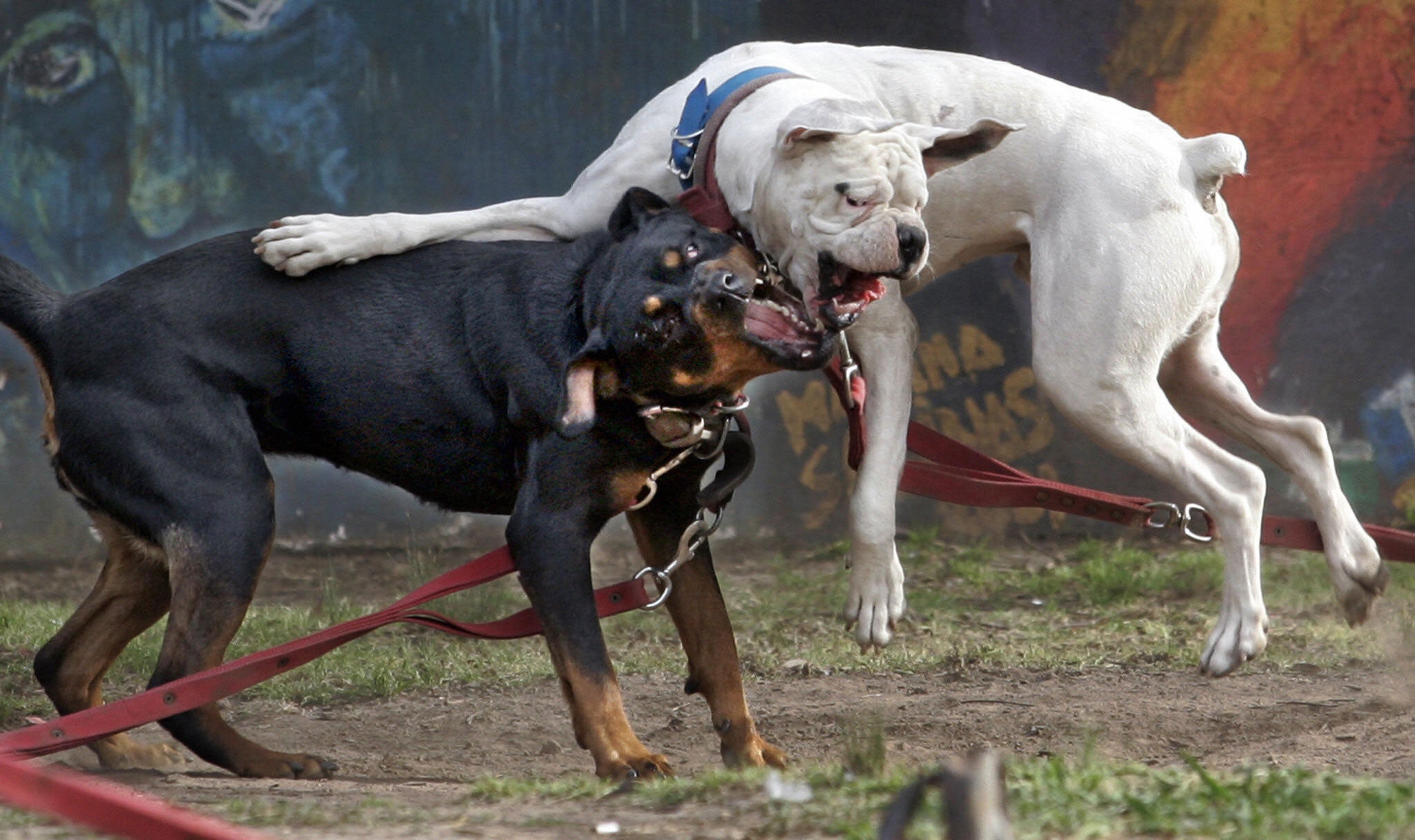Debate: After a teenager was killed in an attack, should the Government ban ownership of more breeds of dog?

What's going on?
A 14-year-old teenager died on Tuesday after she was mauled by five out-of-control dogs while visiting a friend's house.
Police expressed frustration that no charges will be brought as the dogs - bull mastiffs and bull terriers - appear to have been bred legally.
The attack, which took place in Wigan, has reignited calls for the Government to take a stronger stance on the control of dangerous dogs.
Victim Jade Anderson is believed to be the 9th teenager killed by dogs since 2005 and it is estimated that 210,000 attacks take place each year.
Four breeds including the pit bull are banned under current legislation but campaigners have warned others can be equally dangerous without the right kind of training.
Should more be made illegal?
Case for: Family benefit
Aside from boosting the egos of owners, what possible good comes from allowing rough breeds of dog to be kept as pets? These animals - mastiffs, Japanese akitas, Rottweillers - have earned the label "status dogs". Unlike other species, they're time-bombs - even more likely to explode when trained to be aggressive (as many have been). Any number of breeds exist that that pose no threat to society and fulfil the basic role of 'man's best friend'. Banning certain breeds would not only make life less fraught for neighbours - especially those with young children - it would end the horrifying spectre of fatal dog attacks.
Case against: Owner's fault
You can't start banning every species of dog that has ever bared its teeth. That four breeds have been taken off the market is adequate; it must be seen as an owner's responsibility to look after their pets - that means neither letting them run wild nor encouraging aggressive behaviour. Those owners who fail in this duty should face tougher prosecution. Moreover, existing laws need to be better enforced. It is people we need to watch out for first and foremost - well-trained and well-loved dogs pose only the very smallest of risk.
Join our commenting forum
Join thought-provoking conversations, follow other Independent readers and see their replies
Comments
Bookmark popover
Removed from bookmarks